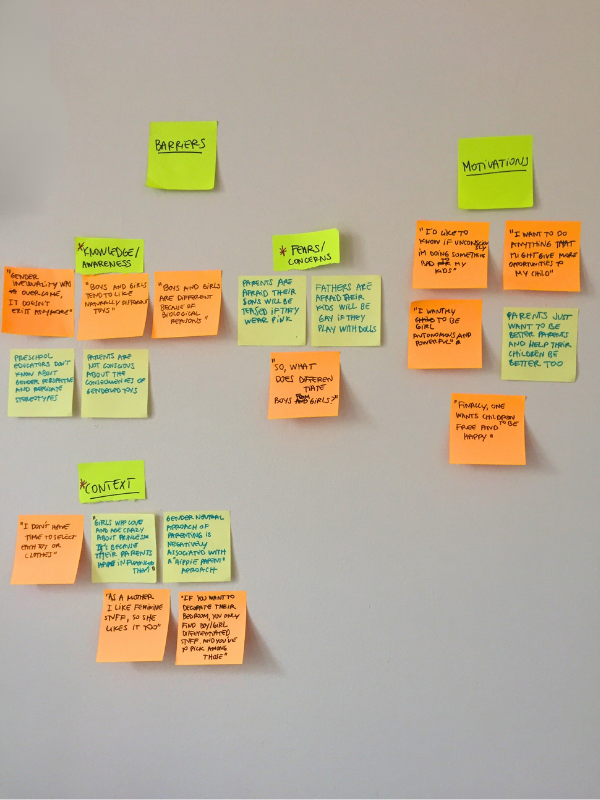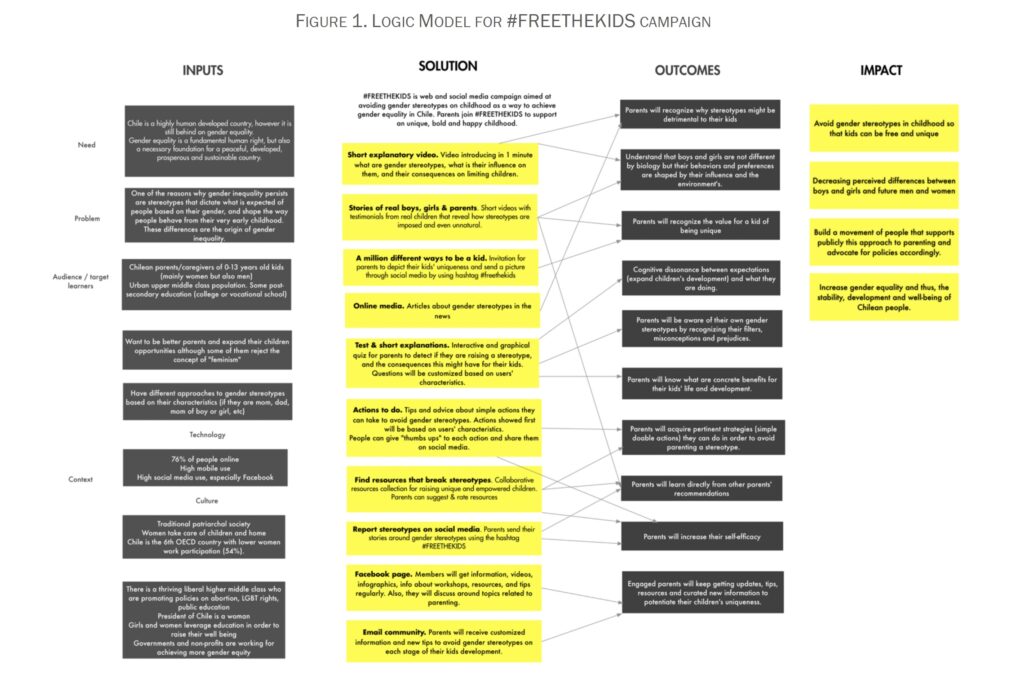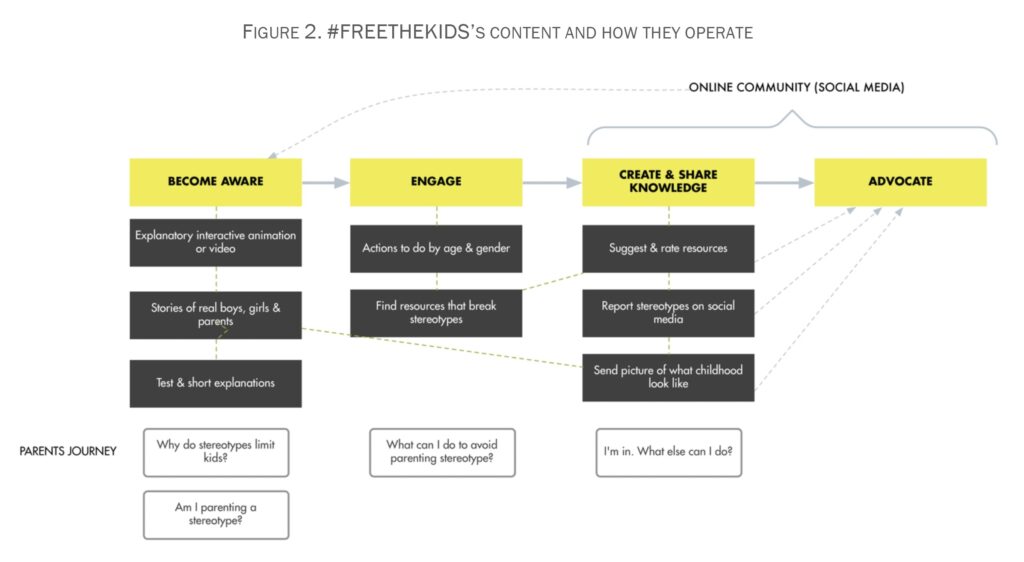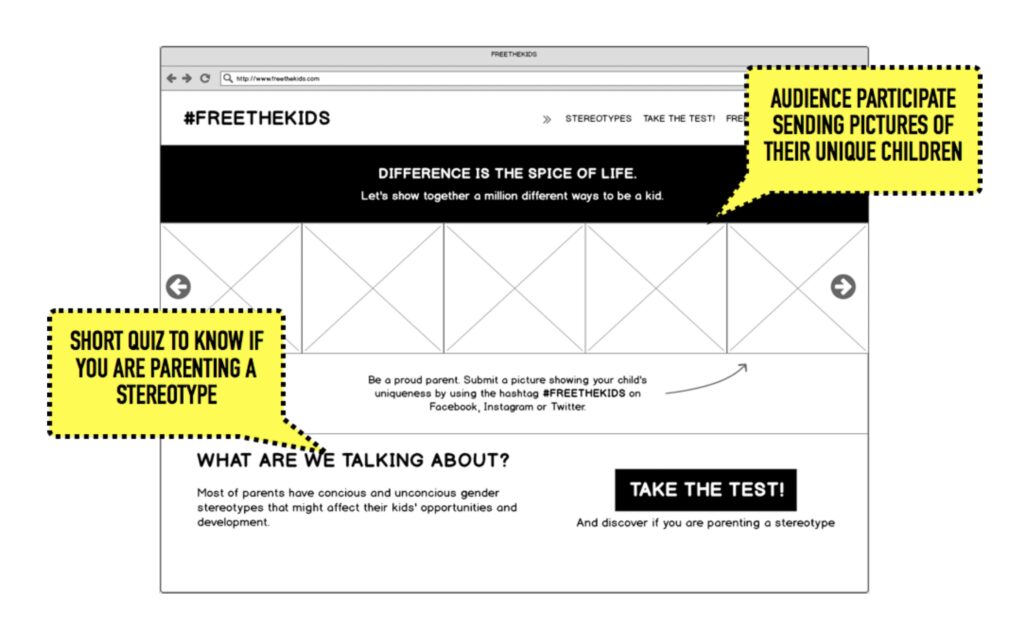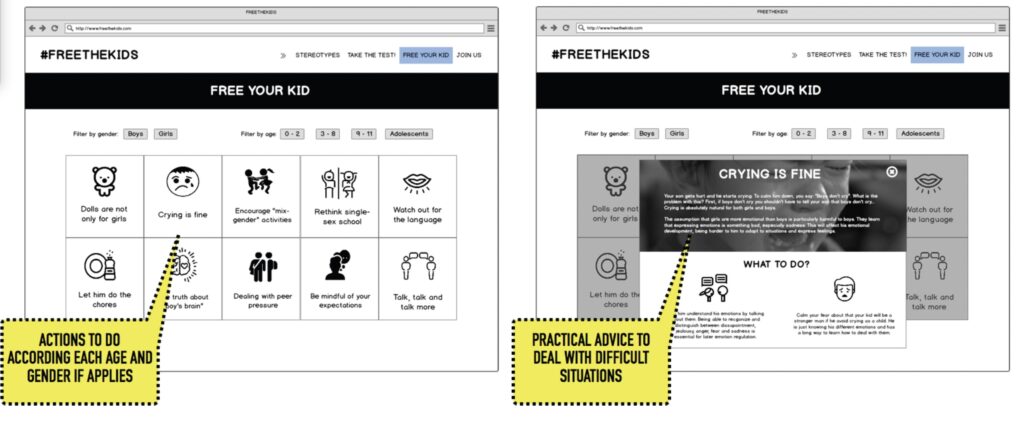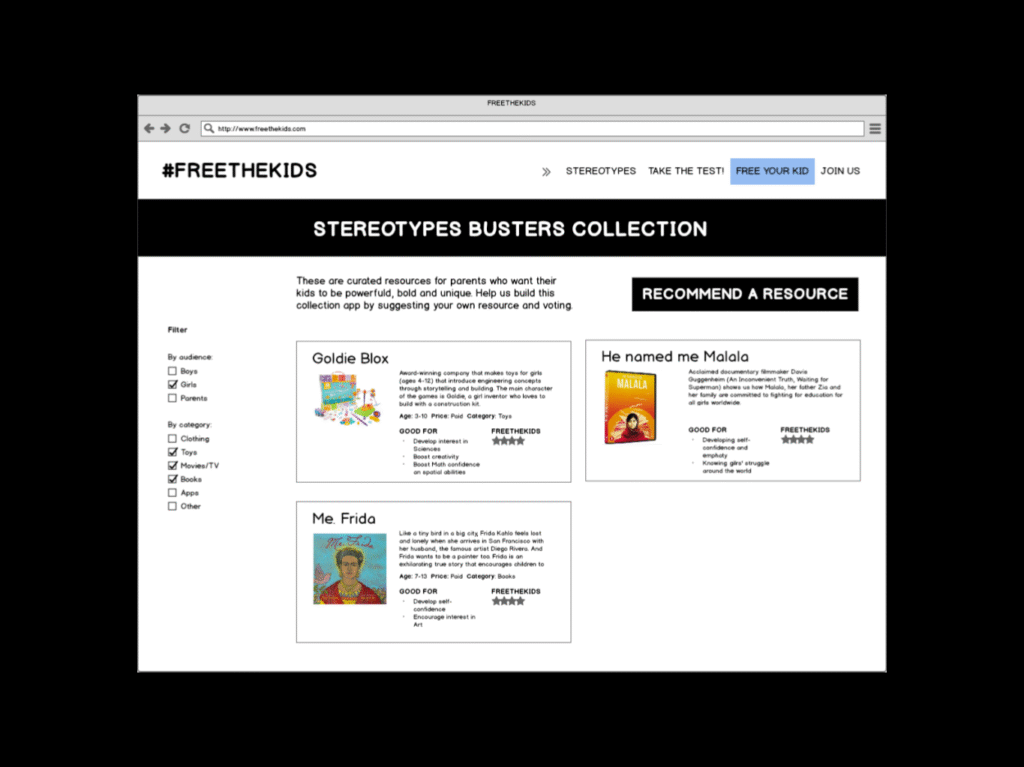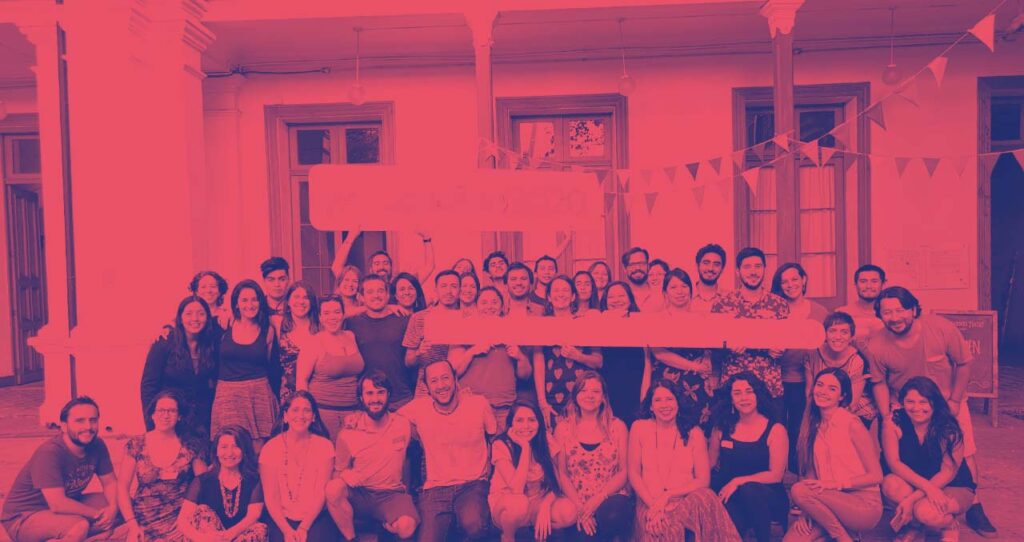Challenging Gender Stereotypes in Parenting
2016
Project Type
Master’s Thesis Capstone Project

Introduction and Goal
Stereotypes formed during childhood played a crucial role in reinforcing gender disparities, shaping how boys and girls perceived themselves and their opportunities. My M.A. thesis project, #FreeTheKids, was a digital campaign designed to educate parents and carers about the harmful effects of gender stereotypes. The goal was to raise awareness, offer practical insights, and foster a supportive online community that encouraged gender-neutral parenting practices.
Learning, Psychology, and Behaviour Change Theories
The design of #FreeTheKids was grounded in established learning, psychology, and behaviour change theories to effectively challenge gender stereotypes:
Cognitive Dissonance Theory (Festinger, 1957): Since stereotypes are deeply ingrained, introducing conflicting information encouraged attitude shifts. The campaign delivered subtle yet persistent challenges to parental biases, prompting self-reflection without direct confrontation.
- Social Learning Theory (Bandura, 1986): Learning occurs through observation and modelling. By showcasing real children defying stereotypes and parents embracing change, the campaign promoted shifts in perceived norms.
- Fogg Behaviour Model (Fogg, 2009): For behaviour change to occur, people need motivation, ability, and a trigger. The campaign offered small, actionable steps to help reduce friction in adopting new parenting approaches.
- Gender Schema Theory (Bem, 1981): Stereotypes act as cognitive shortcuts reinforced over time. The campaign applied techniques such as ‘bookkeeping’ (gradual change) and ‘subtyping’ (creating exceptions) to help parents redefine gender norms.
- Social Constructivism (Vygotsky, 1978): Learning is socially situated. The campaign leveraged community engagement through social media, allowing parents to share experiences, reflect collectively, and feel supported throughout the process.
By integrating these theories, #FreeTheKids created an environment in which parents became active participants in reshaping gender narratives, promoting long-term mindset shifts rather than fleeting awareness.
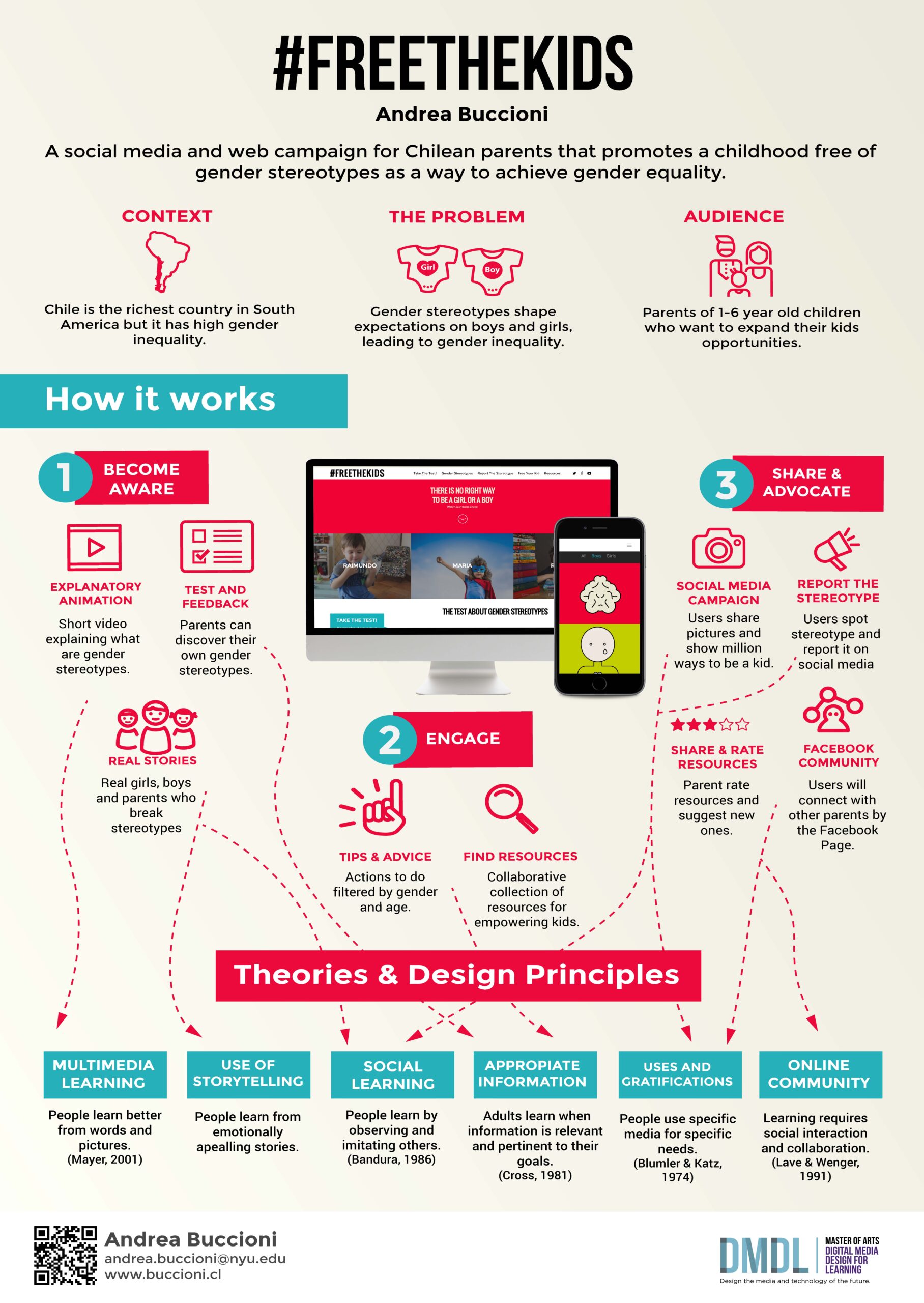
The Outcome
#FreeTheKids culminated in an interactive online experience that comprised:
Short Explainer Videos – Introducing gender stereotypes and their impact in a relatable, non-preachy manner.
- Real Kids’ Stories – Featuring diverse children engaged in activities that challenged traditional gender roles.
- Social Media Engagement – Encouraging parents to share photos of their children breaking stereotypes using the hashtag #FreeTheKids.
- Interactive “Parent Test” – A quiz designed to help parents reflect on their own biases and misconceptions.
- Actionable Tips and Resources – Offering guidance on fostering gender-neutral parenting through practical steps.
- User-Generated Content & Reporting Tools – Allowing parents to flag gender-stereotypical content online and share inclusive alternatives.
- A Dedicated Facebook Community – A supportive space for parents to share experiences, ask questions, and find encouragement.
The campaign capitalised on the high levels of social media engagement among the target audience, particularly on Facebook, making it an ideal platform for sparking conversation and encouraging behavioural change.
